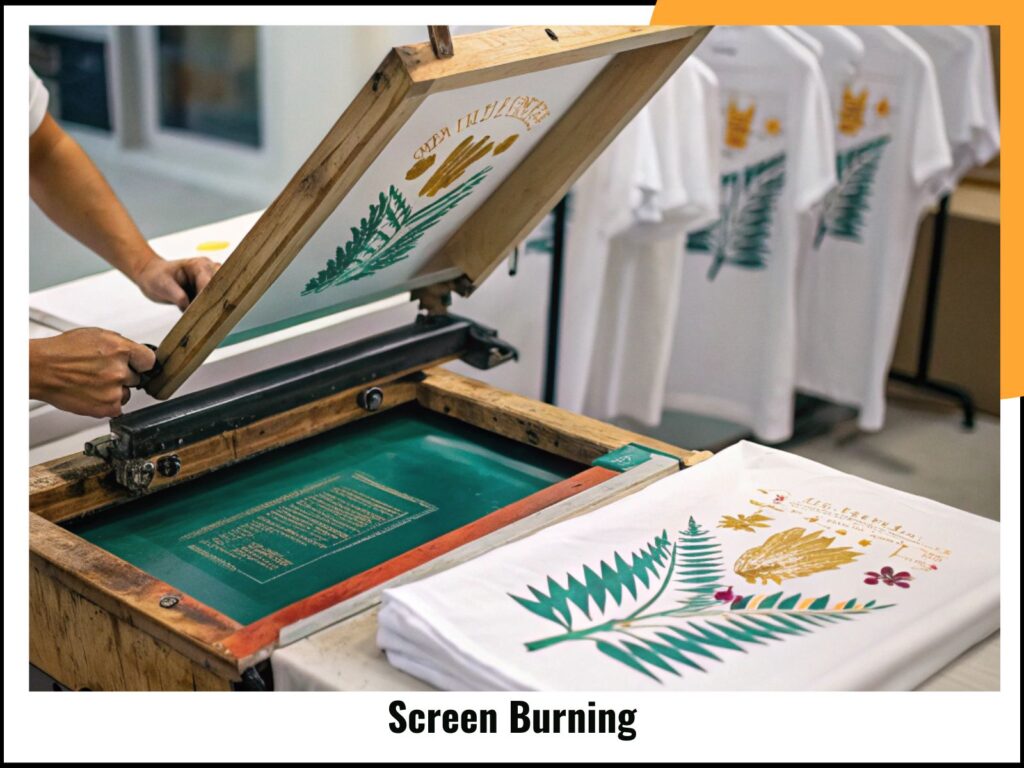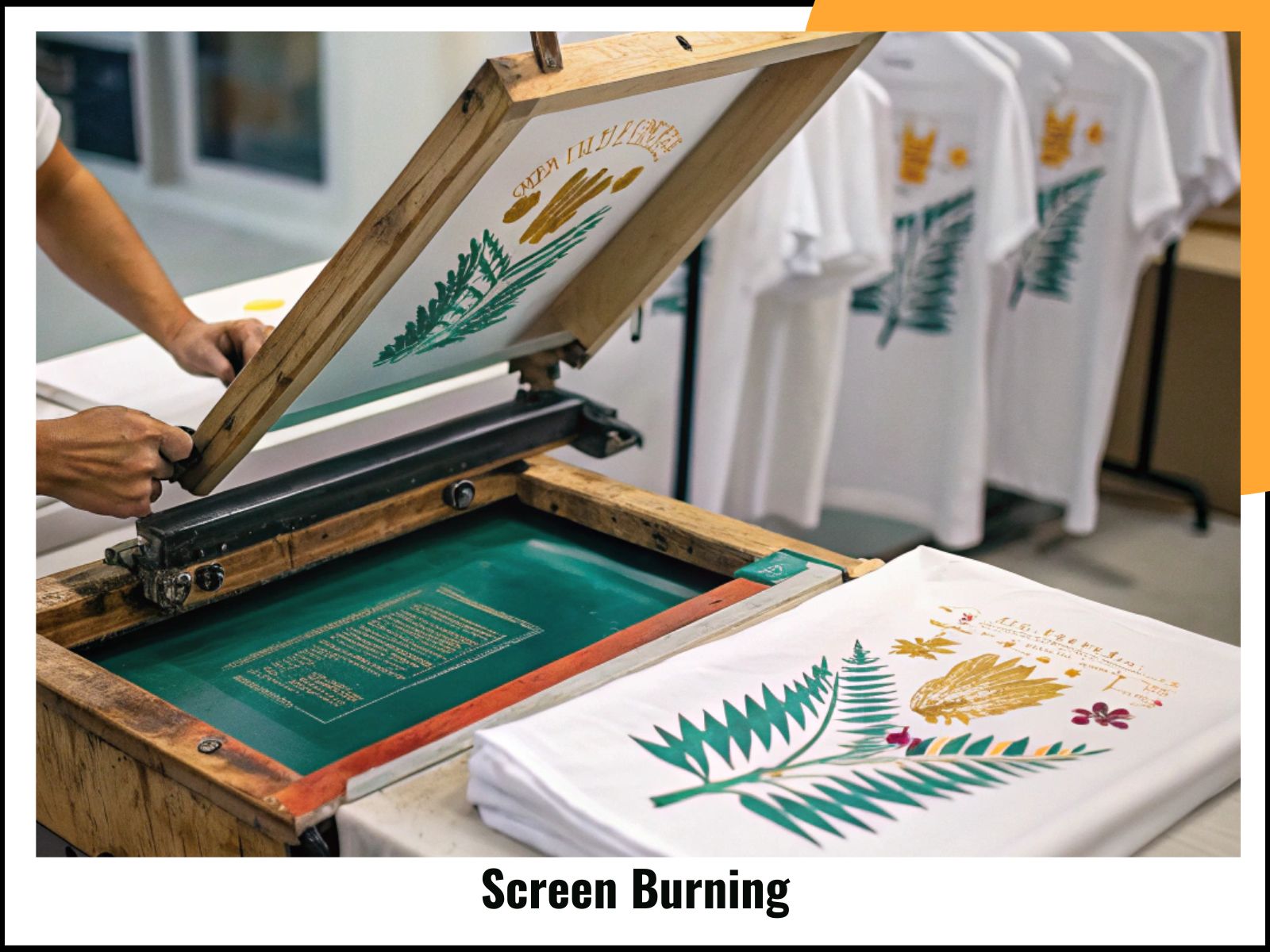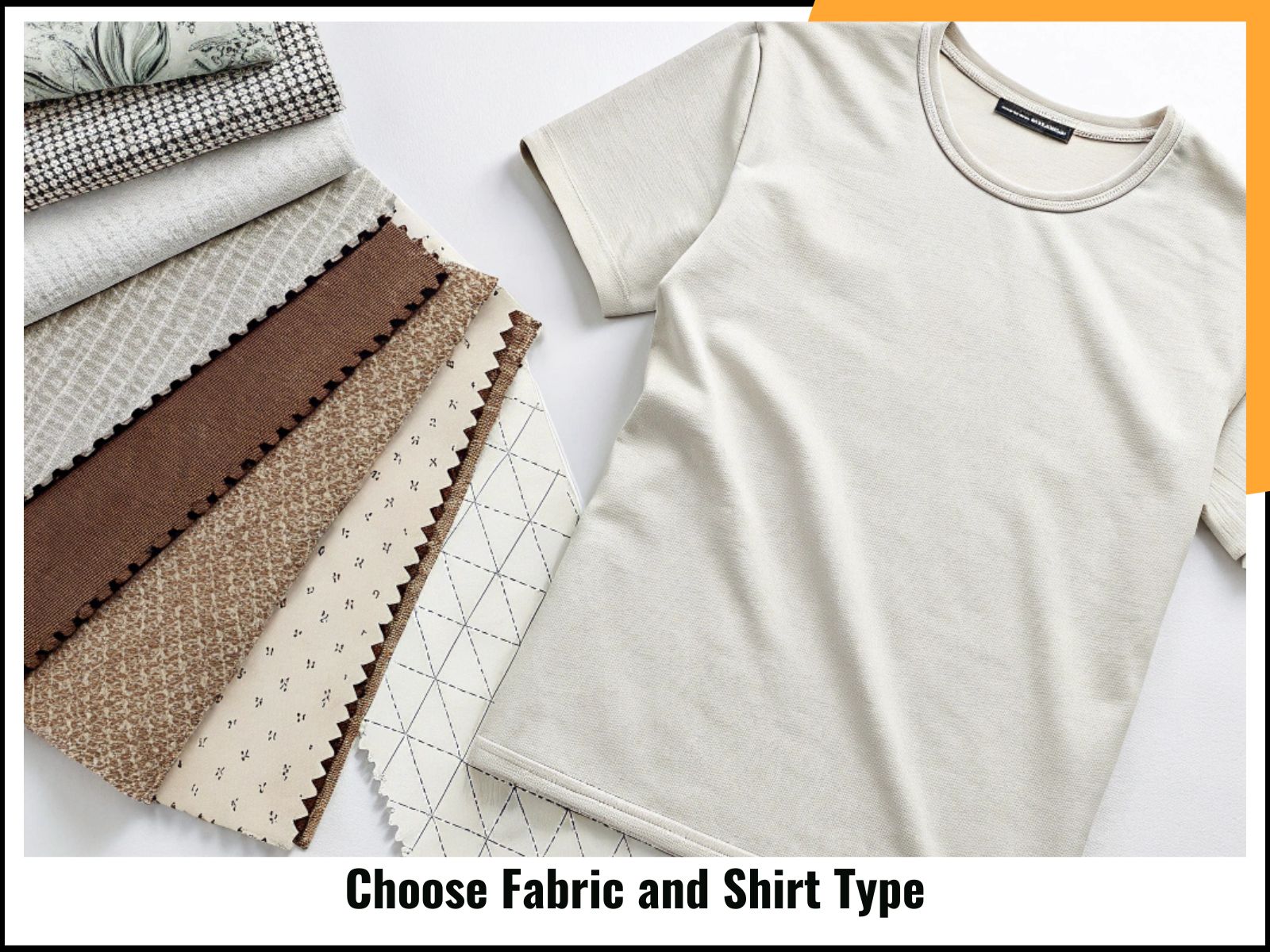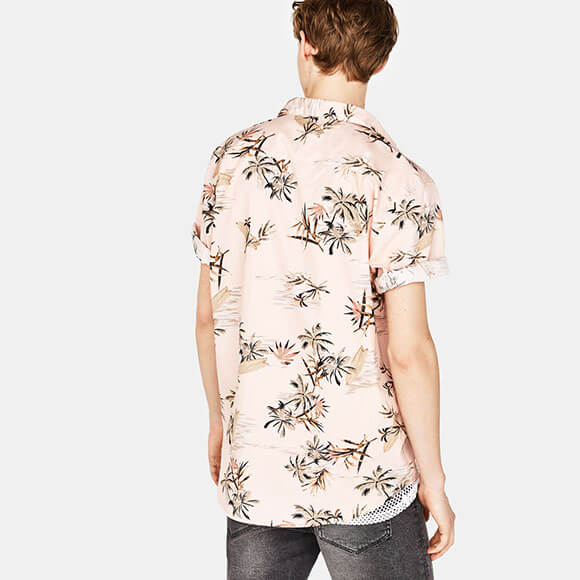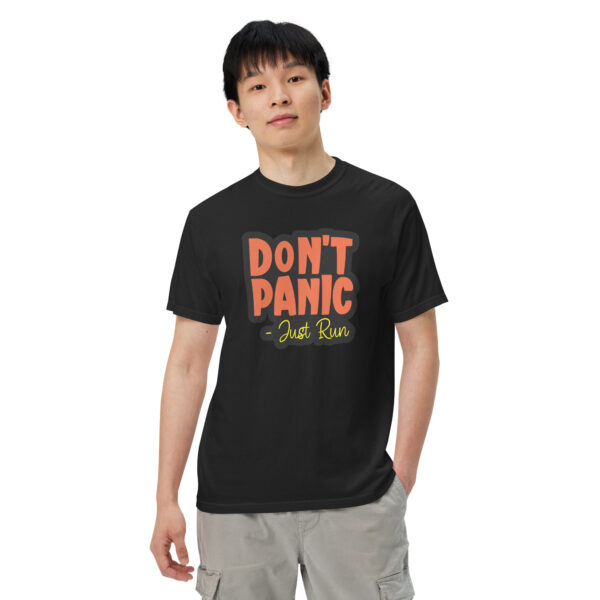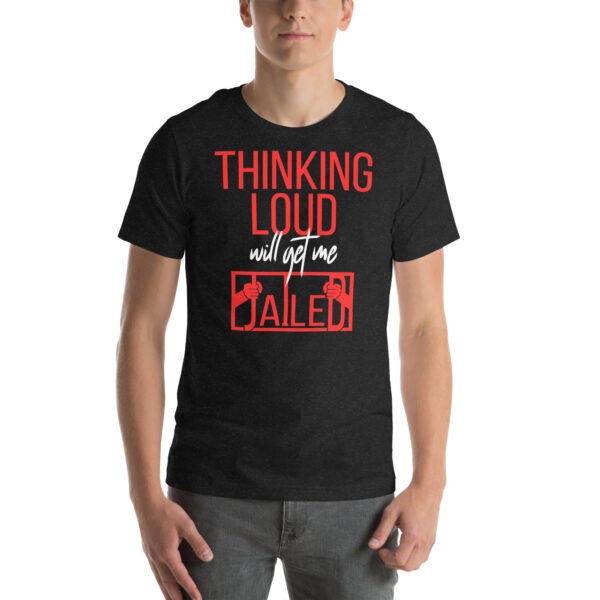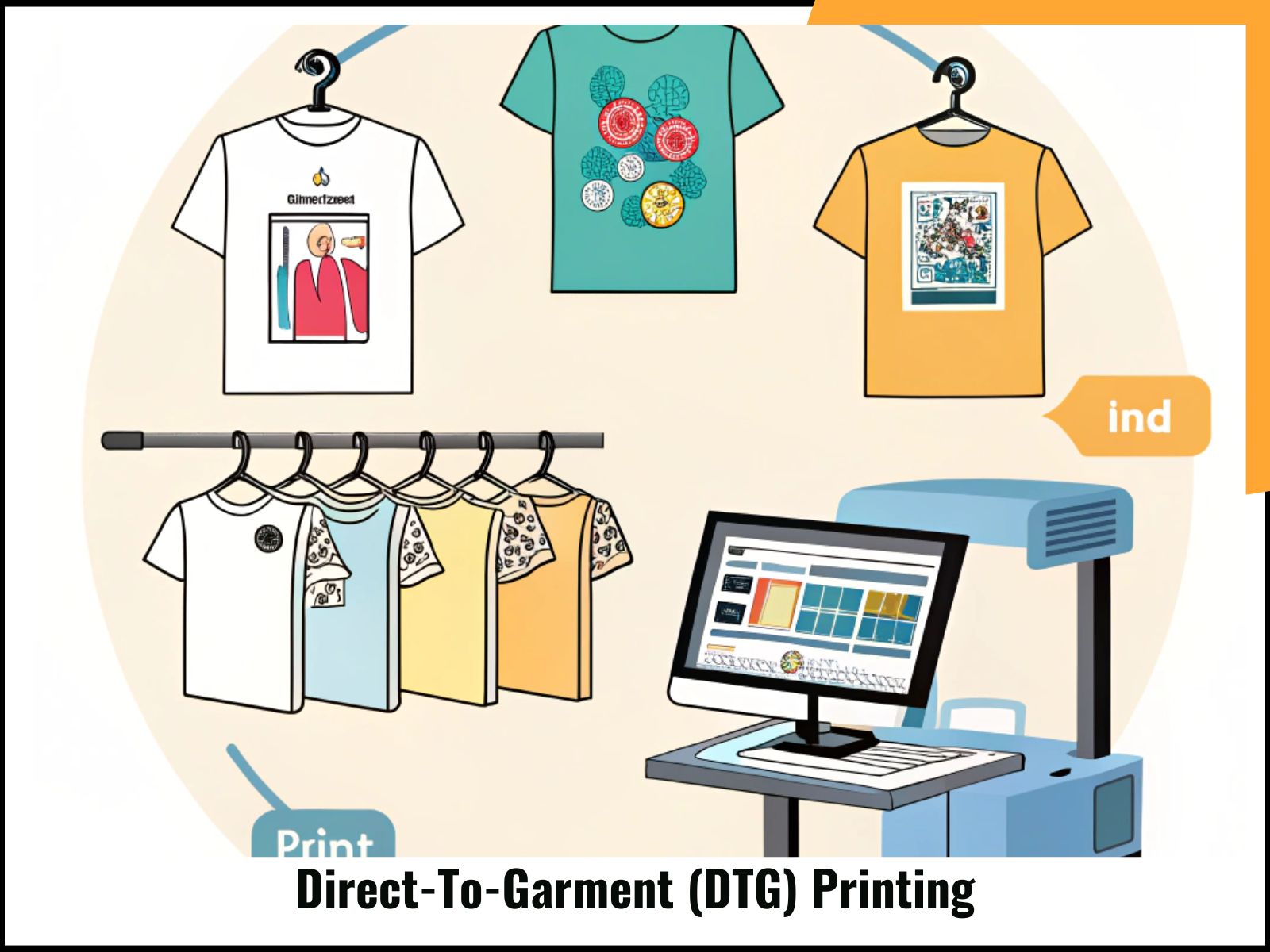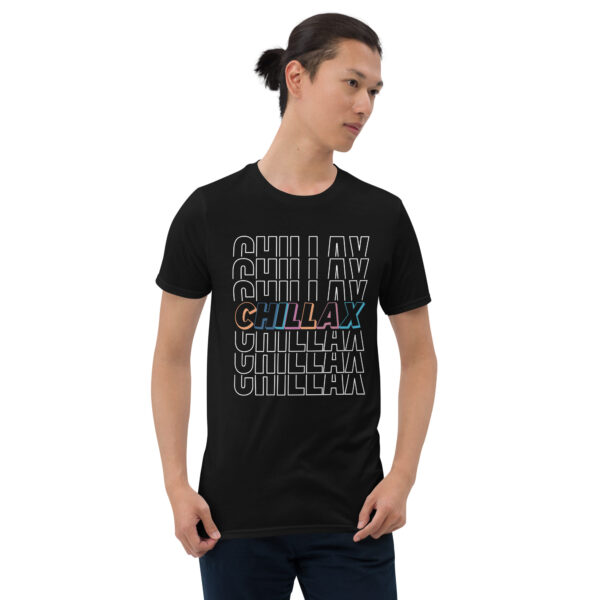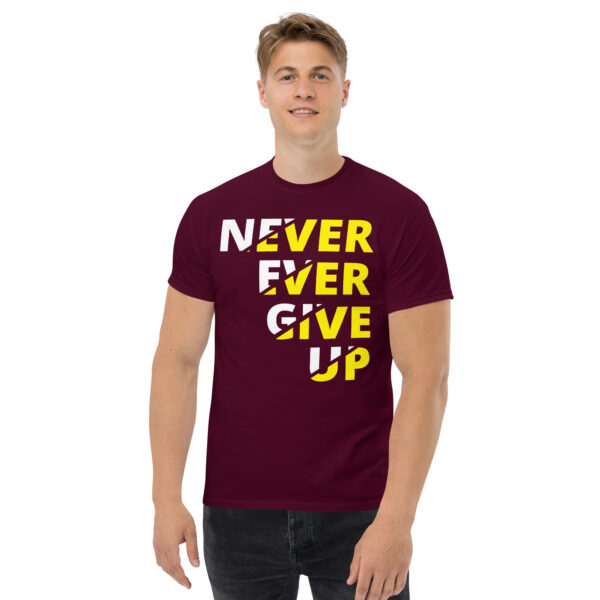If you’re wondering how to print on t-shirts, the short answer is this: there are several popular methods like screen printing, heat transfer, and direct-to-garment (DTG) printing. Each technique involves applying designs or graphics to fabric using heat, ink, or special paper — and the best one depends on your budget, design complexity, and quantity. In this blog, we’ll break down each method, step-by-step, so you can choose the right approach whether you’re starting a brand, printing custom gifts, or just getting creative with your wardrobe.
Table of Contents
Toggle1. Screen Printing (Silkscreen)
What Is It?
Screen printing is a traditional and widely used method. A stencil (or “screen”) is created for each color in the design. Ink is then pushed through the screen onto the t-shirt using a squeegee.
How It Works
- Design your artwork.
- Create a stencil on a mesh screen.
- Place the screen over the t-shirt.
- Apply ink with a squeegee.
- Let the ink dry or cure it using heat.
Pros:
- Durable and vibrant prints
- Cost-effective for large batches
Cons:
- Not ideal for highly detailed or multicolor designs
- Requires setup time and equipment
🧠 Perfect for: Bulk production of logo tees or simple graphic designs like those in our Male Graphic Tees collection.
2. Heat Transfer Printing
What Is It?
This involves printing your design onto special transfer paper, then applying it to the shirt using heat and pressure.
How It Works
- Print your design on transfer paper using an inkjet or laser printer.
- Position the paper on the t-shirt.
- Use a heat press (or iron, for DIY) to apply pressure and heat.
- Peel off the backing to reveal the design.
Pros:
- Great for detailed and photo-quality images
- Easy for beginners
Cons:
- May fade or crack over time
- Not as durable as screen printing
🧠 Perfect for: Small orders and custom, quirky ideas — like one-off Funny T-Shirts or Quoted T-Shirts.
3. Direct-to-Garment (DTG) Printing
What Is It?
Think of this as using a giant inkjet printer to print directly onto fabric.
How It Works
- Load your digital design into the DTG printer.
- Place the t-shirt onto the printer’s platen.
- Print the design directly onto the fabric.
- Cure the ink with heat.
Pros:
- High detail and color range
- No minimum order requirement
Cons:
- Slower for bulk printing
- Best on 100% cotton and light-colored fabrics
🧠 Perfect for: Artistic, full-color prints like our custom-designed Printed T-Shirts.
4. Vinyl Heat Transfer (HTV)
What Is It?
This technique uses a vinyl cutter to cut out designs from colored vinyl sheets, which are then heat-pressed onto the shirt.
How It Works
- Design your artwork digitally.
- Cut it out using a vinyl cutter.
- Weed out excess vinyl.
- Heat press the vinyl onto the shirt.
Pros:
- Crisp, clean designs
- Durable and flexible
Cons:
- Time-consuming for intricate designs
- Limited to solid colors
🧠 Perfect for: Bold, motivational styles like those in our Inspirational Tees collection.
5. Sublimation Printing
What Is It?
Sublimation involves printing your design using special ink that turns into gas under heat and bonds with polyester fabric.
How It Works
- Print your design using sublimation ink and paper.
- Place the print on a polyester t-shirt.
- Use a heat press to apply heat and pressure.
- The ink becomes gas and embeds into the fibers.
Pros:
- Vibrant, all-over prints
- Doesn’t peel or fade
Cons:
- Only works on light-colored, polyester fabrics
🧠 Perfect for: Fashion-forward custom projects with full-coverage artwork.
Which Printing Method Should You Choose?
It depends on your goal:
Goal | Best Method |
Bulk orders | Screen Printing |
DIY and small runs | Heat Transfer |
High-detail and full color | DTG Printing |
Clean, bold designs | Vinyl HTV |
All-over prints | Sublimation |
If you’re buying for yourself or gifting, check out ready-made designs in our collections like Funny T-Shirts or Quoted T-Shirts — all professionally printed and ready to wear.
Final Tips Before You Start Printing
- Use high-quality blank shirts: 100% cotton is ideal for DTG and vinyl. Polyester works best for sublimation.
- Mind the artwork resolution: A minimum of 300 DPI is recommended for clear, professional results.
- Test before bulk printing: Always run a few samples to test color, alignment, and durability.
Conclusion
Now that you know how t-shirt printing works, you’re one step closer to creating your own custom wardrobe or launching your brand. Whether you’re into making people laugh, spreading a message, or just showing off your style, the right printing method can bring your vision to life.
Want inspiration or ready-to-wear designs? Browse our Printed Tees, Inspirational Shirts, and more at Teasifi — where creativity meets comfort.

